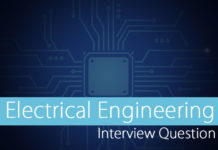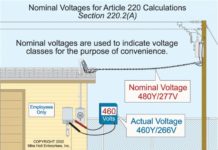How does the human body get electric shock?
Electric shock is the physiological reaction or injury caused by electric current passing through the (human) body. It occurs upon contact of a (human) body part with any source of electricity that causes a sufficient current through the skin, muscles, or hair.
If we model the path for the current through the human body as a resistor, then by Ohm’s law, the current and voltage are proportional. That is, a greater current through the body will be associated with a greater voltage across the body.
[wp_ad_camp_2]
Having said that, let’s consider the source of the shock. It is the case that sources may produce a large voltage but are not capable or sourcing significant current. These sources are said to have high internal resistance. The point is that a high-voltage source with high internal resistance may not give you much of a shock at all while a lower voltage source with low internal resistance may kill you.
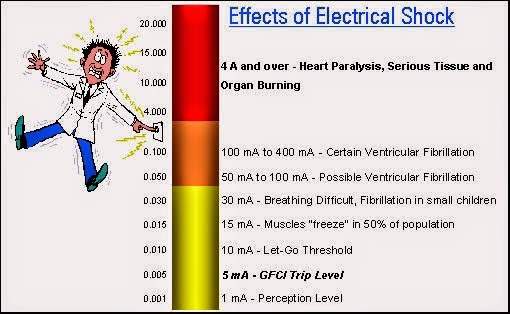
There are two big hazards to look out for when working with and around electricity: electric shock, and arc flash. Electric shock happens when electric current passes through the human body, and arc flash happens when you have a very large, explosive discharge of electric energy in equipment. The dangerous value of electric current with respect to frequency is given below.
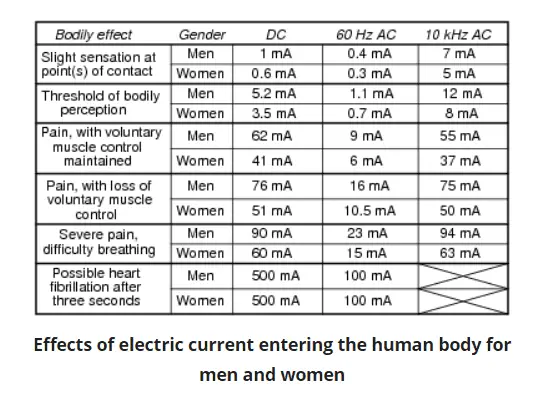
Why is low frequency current dangerous to the heart?
Because the heart beats at a fairly low frequency, low frequency current like the kind found in modern day power systems (60Hz in North America) is very dangerous because it can cause heart fibrillation. The heart is made up of a group of muscles that all have to work together to pump the blood through your body. Heart fibrillation is the medical term for when these muscles are no longer working together: your heart is off beat, and “flutters” or beats weakly but way faster than normal. This weakly beating heart can’t pump blood through your body properly. The blood won’t get to the lungs for oxygen, and the heart will quickly run out of oxygen and stop. The is known as cardiac arrest, or a heart attack.>



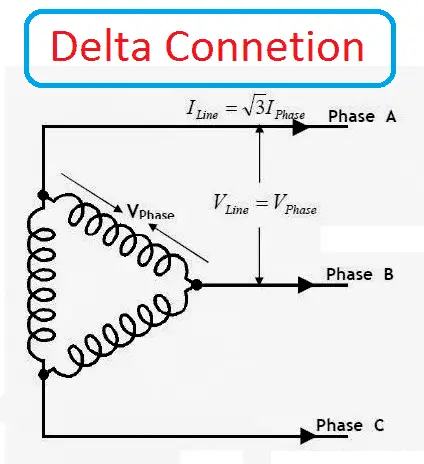
![Why Synchronous Motor is Not Self Starting [Simple Explanation]](https://www.electrical4u.net/wp-content/uploads/2020/06/Synchronous-motor-is-not-self-starting-218x150.png)


